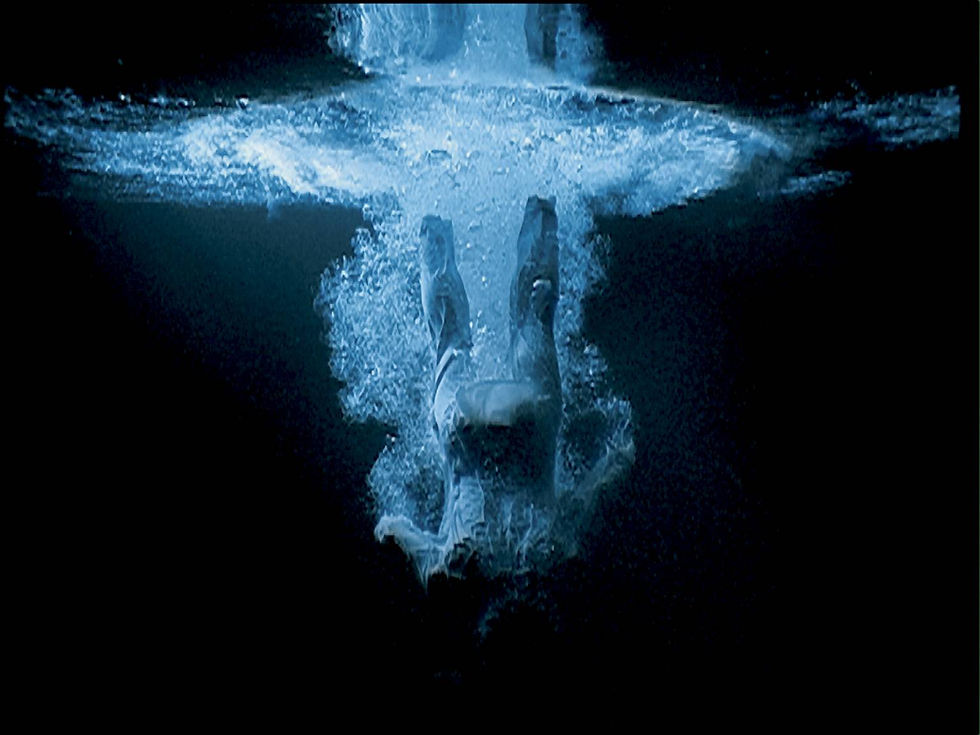Avant-Garde and Kitsch
- Tan Sher Lynn

- Oct 13, 2018
- 3 min read
Updated: Nov 20, 2020
Avant-garde and Kitsch are juxtaposing terms of arts introduced by American art critic, Clement Greenberg. In the era when the verisimilitude of religion, tradition and authority were either doubted or disputed, it was trying times for artists and writers as artists had to rely on exact subjects to construct and create art appealing to specific audience ( Mohamed, 2014 ). The theories and historical implication by Greenberg has been discredited by art movements later on, however his writings remain influential and perhaps paved the path for the revolutionary movement of pop art.
The ambiguity in culture and literature gave rise to the culture of avant-garde. The avant-gardes
best exemplified the ambiguity of the era as they seek to create new "originality" something "cutting-edge" through "the imitation of imitating", in which artists mimicked the process of which techniques were formed rather than the technique itself, encapsulating the subconscious. Avant-garde was challenged to discover new forms of expression in the bourgeois society that it was tied to without capitulating to it. However, the avant-garde were part of the bourgeois society it very much opposed as the were connected "by an umbilical cord of gold", as they were the ones who had the leisure to appreciate the concept of art and therefore the ones who funded the avant-garde. Due to it's abstraction and variation, avant-garde were doubtful about its audience, thus faced funding issues as even the middle-class were confused as to what is considered "avant-garde".

An example of a contemporary avant-garde artist would be Bill Viola also known as one of the most important pioneers of video art in the 70s. His installation would often incorporate experimental sound and music in a darkened or barren space to eliminate anything that would divert the viewer's attention and prevent an immersive experience of his artworks. Viola has created groundbreaking contemporary artworks in the art world and influenced many others.
Kitsch is the juxtaposition of avant-garde. Kitsch, affiliated with the lower-class, the proletariat is the ramification of the industrial revolution, the product of urbanization and the education of the general public. While avant-garde imitates the process of art, kitsch imitates the result of art, illustrating the obvious consciousness. The audience of Kitsch are often people of the middle and lower class of society who were not necessarily intellectuals of art yet coveted for some sort entertainment, leisure, a medium for culture in the hectic urban lifestyle. Kitsch became part of the western emerging mass culture, as the majority is content with the kitsch while the official culture belonged to the cultured minority. Greenberg argued that the popularity of kitsch lies the great potential for political manipulation. Leaders lead the people to believe that they were individualistic while they were in fact succumbed to the propaganda on the account of mass appeal.
"Kitsch is art that engages the emotions and deliberately ignores the intellect, and as such, is a form of cultural anesthesia. It is this ability to build and exploit cultural myths - and to easily manipulate conflicted history - that makes Kitsch a powerful political construction." - Catherine Lugg at Rutgers

Often times kitsch would be associated with the communist regimes as they were used to manipulated the public then, however kitsch is ubiquitous, in fact pop culture in mainstream media today could generally be considered kitsch. Politicians often use political kitsch to appeal to the notions of culture of the general public. Incidentally, memes on social media, YouTube clips that go viral are urban myths drawn on kitsch. Yet at the same time, mainstream media which is often considered kitsch would tap into the avant-garde. Could we clearly distinguish between avant-garde and kitsch in this globalized consumerist society today?
References
ARTCONSULTANCYHABERZ. ( 2017 ) "Imitating Imitation – After Clement Greenberg" January, 20. Available at: https://artconsultancyhaberz.com/2017/01/20/imitating-imitation-after-clement-greenberg/ ( Accessed: 13th October 2018 )
Clark, T. J. ( 1982 ) "Clement Greenberg's Theory of Art", Chicago Journals, September. Available at: https://cpb-us-e1.wpmucdn.com/blogs.ntu.edu.sg/dist/5/1519/files/2017/08/Week-12-TJ-Clark-16xnx25.pdf ( Accessed: 13th October 2018 )
Mathis, M. ( 2004 ) "Clement Greenberg", MILES WILLIAMS MATHIS, November 17. Available at: http://mileswmathis.com/gberg.html ( Accessed: 13th October 2018 )
Mohamed, A. ( 2014 ) "Clement Greenberg, “Avant-Garde and Kitsch” Analysis", Art, Febuary 6. Available at: https://sites.psu.edu/1314passion/2014/02/06/clement-greenberg-avant-garde-and-kitsch-analysis/ ( Accessed: 13th October 2018 )
Triarchy Press ( no date ). "Political Kitsch". Available at: https://www.triarchypress.net/idioticon--political-kitsch.html ( Accessed: 13th October 2018 )




Comments